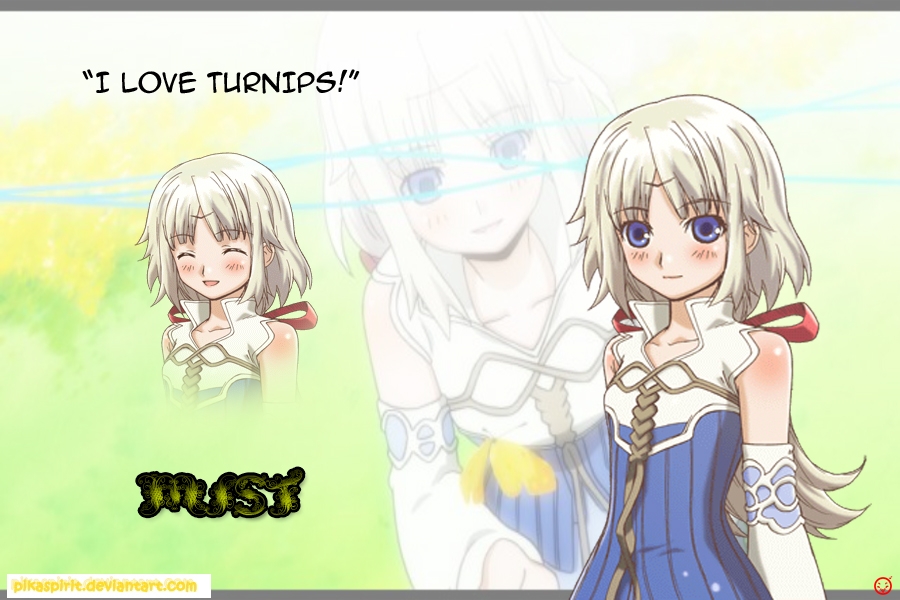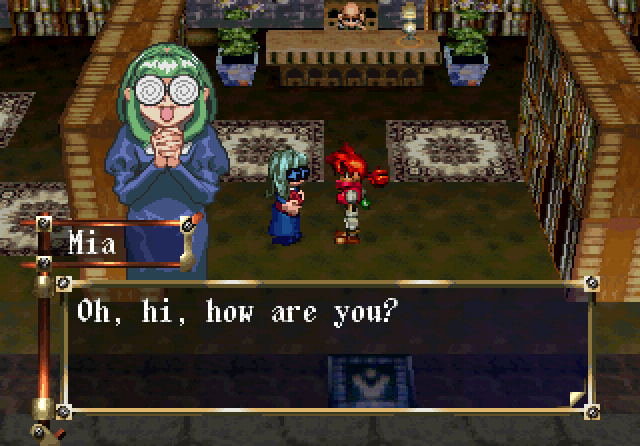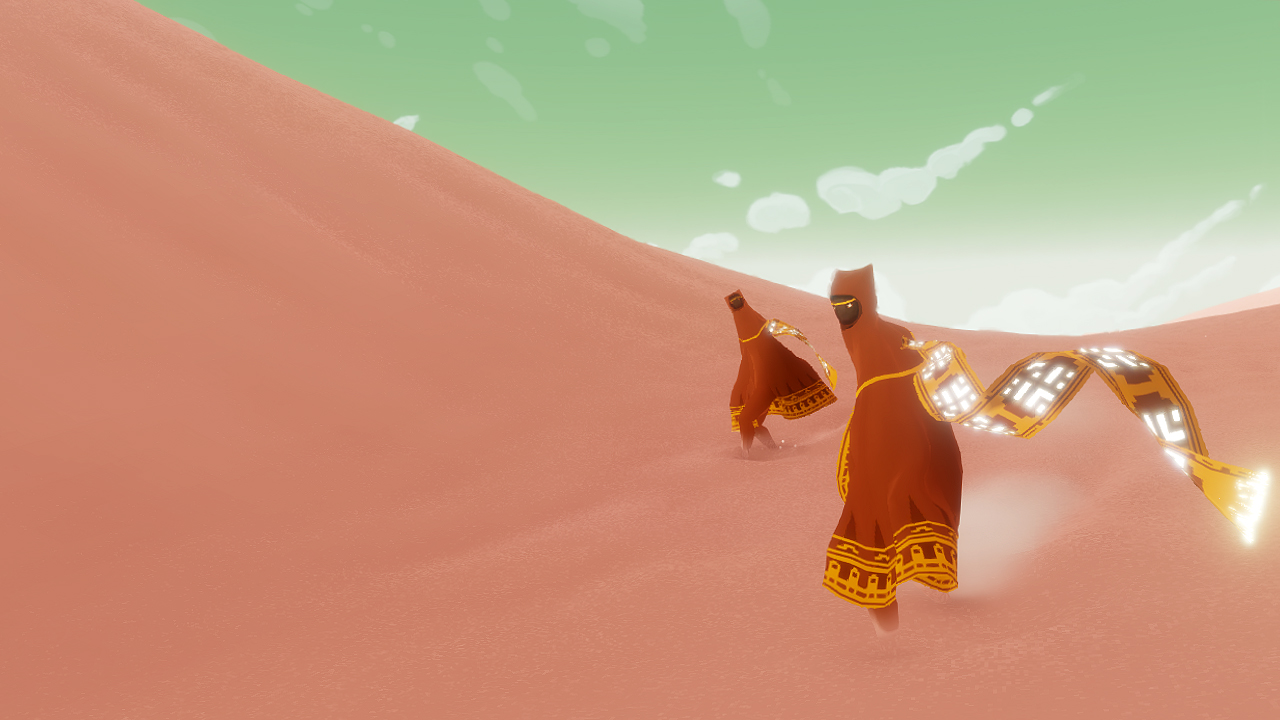NO! I'm not dead...but I have been very busy. My attempts to keep two blogs, a job, school, and my personal work going, as well as finding time to unwind has been...difficult. So, expect slower updates on this blog in the coming months, at least until I finish with my classes. For now though, I do have a long update for people. So, let's look into Companionship:
Endearing vs Annoying.
Something
that a lot of developers seem to have trouble with is the idea of companionship
in video games. A lot of them want to
make a deep, meaningful connection between two characters, so they tend to put
them together so a bond can develop.
Problem. Without another human
brain, you run the risk of completely ruining this experience. See, unless you or someone else can control
another character, quite often they will become more of a burden than a friend
or a lover or what have you. The AI in
video games, or even the circumstances surrounding another character, are often
too weak to force that kind of bond. So,
that brings up a few interesting arguments on companionship. How do you make a character endearing, when there
isn't another human behind the steering wheel?
How do you avoid making them a burden or an annoyance? Well, let's take a look at a few prominent
games based around a system of companionship and see different approaches taken
in the past, both good and bad.
 |
| Good game design and narrative can even make two silent robots endearing. |
Probably
the most famous, and yet the most esoteric, companionship in past years has
been Ico and Yorda from the game Ico.
Yorda is the very definition of what can be called a burden. You die if she gets too far away from you, she
can do nothing for herself, you literally have to hold her hand through most of
the game, and she speaks very little.
Yet, people often cite Yorda as one of the great gaming companions of
recent memory. Why is this? I tend to believe it is because of the
circumstances. You see, the world of Ico
is bleak, lifeless, cold, and lonely.
Ico the character is hated by his fellow villagers and attacked by
monsters within the castle. Yet Yorda is
not afraid of him. She speaks very
little, but does not abuse Ico, does not hate him, and is comfortable enough
around him to let him guide her and to rest with him on a bench when saving the
game. Yorda seems like a burden, however
the way the game is designed, burden or not, Yorda is all you've got. Yorda is the one ray of light in the
darkness. Because of this, it feels
almost like a fairytale, where a prince and a princess must escape an evil
witch. And all of this is conveyed
through art and mechanics rather than through a lot of text or narrative. Despite not having very good AI and being
largely dependent on you, Yorda forms that meaningful bond of companionship by
being the only hope you have for the future in a world that hates you.
 |
| The image of Ico and Yorda holding hands is immortal in gaming. Two lost souls who depend on one another not just for puzzles or mechanics, but for the hope to keep going. |
Conversely,
let's look at Resident Evil 4 and Ashley Graham. Ashley is an attractive young woman in a cute
sweater and a miniskirt. She is often
useful for puzzles and her death, like Yorda's, spells the end for you. However, Ashley is looked upon in a far less
kindly manner. The circumstances surrounding
Leon Kennedy, the main character in Resident Evil 4, are, arguably, far more
hostile than in Ico, but a good deal less bleak. Leon is taunted by his enemies, he
is encouraged by allies and uncertain elements, he is frequently talked to and
is far less feeble and helpless than Ico.
Leon
is also far more well liked, as his allies care for him and his enemies even
respect him somewhat. In this situation,
companionship is not something novel. It
is not a single ray of light in the darkness.
And because Ashley is not all that you have, because you meet other people,
are able to talk with others, etc. her significance as an endearing companion
is diminished and she just becomes annoying.
She becomes a weight around the player's neck because they know they're
not alone, or hated, or reliant on Ashley for any other reason than the game
says so.
 |
| Sums up the problems with Ashley in a single sentence. |
From these
two cases, the importance of tone and circumstances is emphasized. Ashley and Yorda play very similar roles in
their respective games, but one is well liked and considered a true companion
while the other is a weight around your neck.
At a very basic level, this is a good way to define endearing vs annoying. Do you want to be with them. Yorda, while frustrating at times to have due
to the instant death one can suffer from her, is all the comfort you have in
the game. You want to be with her, just
to relieve the crippling loneliness and feel like you are wanted or
needed. Ashely is not all you have. You have Ada Wong, Ingrid Hunnigan, or even
the villains who taunt you, like Ramon Salazar or Krauser. Leon is not alone. Beyond that, he also has other comforts, such
as a feeling of superiority in besting enemies with various weapons. Ashley, therefore, is more frustrating than
comforting. Rather than being endearing,
she is annoying.
Now, with these
concepts laid out, let's examine some ways around the Ashley scenario that
don't rely so heavily on the bleak circumstances of Ico. Ways to try and create an endearing
companionship while avoiding the burdensome behavior we have seen in the
past. Silent Hill 2 and 4 have tried two
different approaches at this. At various
times in the game, you will be forced to have a companion. In Silent Hill 2, it is the character
Maria. Maria is not really a weight
around your neck because she is not necessarily reliant on you. She dies several times in the game as is, so
her protection is not really the player's problem. She will follow you regardless. However, the problem with this is that the
companionship itself is relatively pointless...she is a comfort in the horrors
of Silent Hill, true, but outside of cut scenes, she does very little, so her
presence could, in theory be excised without loosing much impact. Silent Hill 4 takes a different approach,
where you have a character who follows you, but her death means your death,
like with Ashley, and if she takes too much damage, it will adversely affect
the ending. This encourages players to
look after her, but begrudgingly at best.
There are attempts to make her feel necessary, by giving her the ability
to wield weapons or make comments about the world around her, however the
weaponry takes up precious spaces in your inventory and the comments are easy
to miss. Ultimately, Silent Hill 4's
approach is a step in the right direction...but still more frustrating than the
consequence free companionship of Silent Hill 2.
Resident
Evil 5 actually comes relatively close to making a companion feel both
necessary, useful, and even comforting.
The character Sheva wields weapons, just like Chris Redfield, the main
character, and is capable not only of looking after herself, but also of
protecting the player and assisting them with boss battles. She can heal Chris or herself, give ammo, and
offers both colorful commentary and a feeling of not being alone in a tough
situation. Yet, Sheva is also heavily
criticized. She does not always use the
best weapon for the best situation, even if she has it in her possession. She can waste healing items on minor
wounds. And Sheva also falls under the
problematic approach of, if she dies, you die.
While useful and even at times enjoyable to have around, due to her
beauty and her useful abilities, Sheva is still a problematic and at times
annoying companion. Sheva is a perfect
example of good intentions limited by artificial intelligence. She tries to act with prudency and humanity,
but is limited by the designer's foresight.
 |
| Sassy, sultry, capable, and heavily armed...the perfect companion, right? Err...right? |
I think
this is a good time to mention that pretty much every companion I have
mentioned is a female. This is a rather
sad trope in companionship in gaming.
Because the popular perception, which is flawed might I add, that most
games are played by men, they think that a woman as a companion creates an
instant endearment, either for sexual reasons or for reasons of chivalry. This is, however, a rather pitiful attempt to
make a character endearing without giving them any real substance. Neverdead, for example, has what can only be
described as a lascivious young woman accompanying the male character, who can
fight and use guns, but still needs to be kept alive...the reason players are
supposed to care for her is her looks.
This does not work. She is
frequently a burden and not well liked, due in part to her personality and her
voice acting, and in part to the instant death which surrounds her.
 |
| Why are we supposed to care again? Oh, right! Cleavage! |
There are a
few examples of male companions, such as in war games like Resistance: Fall of
man, the warrior, dwarf, or wizard characters in Dragon's Crown, male body
guards in Skyrim, etc. however they fall prey to a combination of the Silent
Hill 2 and the Silent Hill 4 problem.
While they can be useful and helpful for clearing a level by attacking
enemies, ala Silent Hill 4, we have no real reason to care, as they have almost
no real personality and their deaths mean nothing to us. This negates any possibility for
companionship. The one time I have seen
male companionship done well is in Gears of War, where it is necessary to keep
the male characters alive, but they do not die right away...they can bleed out
and you can save them, giving you a bit of a buffer. And likewise, not only do they fight with
you, but they can also save you. It is a
nice feeling of camaraderie, only hindered by the generally weak character
developments beyond the grizzled soldier stereotype.
 |
| Despite the grizzled soldier stereotype, Dom is pretty endearing, due to the brother's in arms-esque nature of Gears of War. |
Probably
the best example of a companion character that I have ever seen does still have
flaws. Elizabeth in Bioshock Infinite is an
interesting, attractive young lady who frequently gives you money, ammo,
weapons, and can create new areas for you to use as cover or to restock your
supplies or attack enemies using her unique powers. The enemies never attack her because of the very
good excuse that she is seen as something of a messiah and is respected, so
they want to kill you and take her back unharmed. She frequently talks to the main character,
Booker Dewitt, and her absence is felt whenever she is not with you, because
she is both a voice of innocence and idealism in a world that is very
harsh. What's more, not only is Elizabeth not a burden on
you, but she can also save you from almost certain death. And this gets into the biggest problem with Elizabeth. While a beautifully fleshed out character,
very useful, and one you do gain a genuine emotional attachment too, she does
somewhat cripple the game. When there is
no fear of death, save for the loss of a few coins, it does not encourage the
player to get better, nor does it afford the level of challenge one might want
in such a game. In trying to make an
endearing companion that is not a burden, the game designers sacrificed
challenge and, to a degree, balance.
 |
| Sweet and idealistic, helpful and likeable, beautiful and charming, Elizabeth is a great ally...pity she makes the game so blatantly easy. |
So, what do
we do to resolve this dilemma? Well, as
far as I can tell, there are three ways to make characters endearing rather
than annoying. The first is
circumstance. Like with Yorda or
Elizabeth, use the circumstances of the world to try and make them more
endearing. Yorda is your hope and the
only compassion in a cruel world, so you care for her, while Elizabeth is fully fleshed out and is not an
over glorified escort mission, due to the fact that she is meant to be captured
and not harmed in the context of the game's story. The second option is much more difficult, as
it requires maintaining a balance between usefulness, emotional attachment, and
frustration. This option is to
incorporate most of what we have previously discussed into a single character
with the caveat that, while she cannot be killed to give you a game over,
letting her get hurt will make you feel so bad that you will WANT to protect
her. Perhaps having a character collapse
and softly weep in the background for a few minutes, like until you hug her or
help her up, might be the needed balance between an escort quest and a genuine
companionship story. However, this
requires a high level of polish, both in the AI and in the game design. Pathfinding issues, idiotic choices, or
overuse of said weeping or incapacitation mechanics could cripple it. Most developers are unwilling to try and work
that hard for the endearment. The third
option is the easiest and does not necessarily have to remove endearment from a
game. That option is to not require the
character to be a part of battle. Oh,
certainly give them their own personality, their own AI, and things to do, but
keep them in a strictly residential district.
A few might
cry sexism, as this is essentially saying that women need to be kept in the
home, or what have you, but hear me out.
It's used to great effect in games like Rune Factory Frontier or
Pandora's Tower where you have characters important to you and to the
plot. You have companions who do their
own thing. However, they don't need to
be in battle. Their personality, their
contributions to you, and their story is what makes them endearing, rather than
gameplay mechanics. In Rune Factory
Frontier, the character Mist is very strange, a bit silly, but also very
likable. She will give you gifts, but
does not hang around her house. She goes
for errands in the village, tends to her flowers, follows a schedule, etc. You don't need to worry about her, but at the
same time when she gets kidnapped, you want to save her because...the world's
just not the same without her. Elena from
Pandora's Tower is another example of this, where her presence is reassuring,
she does a huge amount of things for the player, and while she isn't essential,
when she is gone, her presence is missed.
This does fall apart a little since players are on a timer with Elena's
life on the line, but in concept, it is a good idea. And it does not have to be limited to
domestic or female roles either. In the
early parts of Shining Force 2, characters are accompanied by their mentor, Sir
Astral who is purely an adviser and does not take place in battle. Then, he leaves the party and you spend
several hours without him. Once he
rejoins the team, it feels...right, you might say. You missed the character, even without him
having participated in battle because his actions and his role in the story
make players care.
 |
| Keep calm and eat turnips. Seriously, without Mist, Rune Factory just isn't Rune Factory. That's how endearing she is, even outside of battle. |
Ultimately,
it is my belief that developers need to ask the Q&A testers one big
question when designing a partner in either capacity. "Does this improve the game?" With Elizabeth,
it does. Bioshock Infinite would be very
different, almost impossible, without her presence. The same goes for Yorda. However, think about Ashley Graham...if she
was kidnapped and managed to either hide or escape, only reappearing in cut
scenes, would that have been such a huge loss?
I'm not so sure, myself.
Developers are going to have to, at times, make compromises when trying
to make endearing characters due to time or limitations on hardware,
experience, or even by publisher mandate.
However, they can still make the experience enjoyable. Is Sheva a problem in RE5? Well, she has her flaws, but the game
wouldn't be what it is without her. And
I dare say it might even be a little bit boring. So, Sheva, despite being flawed is a decent
partner. Same for Dom in Gears of War,
as he not only supports you, but can save you, just as you can save him. Perfect?
No. But still a part of the game
that makes it special and, dare I say it, enjoyable.
Common
sense is good here...it's great to make a game you love, but also think about
who else you're making it for before you make partner death an instant game
over, give them a bad personality, or hire an actress to voice them who just
doesn't fit.
Alot of the
time, it's not endearing vs annoying.
It's which do we have more of?
Endearing or annoying? The best
most of us can do is try to tip the scale in favor of endearing, because no
matter how hard you try, there is not going to be a character for
everyone. So, do your best to make them
more fun or meaningful than they are tiresome or troubling.



